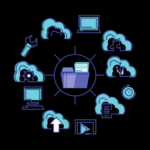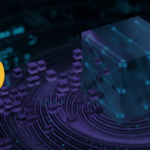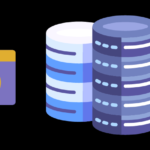How to Interview a Django Developer? Begin by assessing their knowledge of Django’s architecture, ORM, and middleware to ensure a solid foundational understanding.
If you’re searching for a skilled Django Developer to join your team, conducting a comprehensive interview is crucial to ensure you hire the right candidate. The interview process provides an opportunity to evaluate a candidate’s technical expertise, problem-solving abilities, project experience, communication skills, and cultural fit.
Let’s dive in.
Key Takeaways
- Interviewing a Django Developer involves evaluating their technical skills, problem-solving abilities, project experience, communication skills, and cultural fit.
- Preparing for an interview requires understanding the role of a Django Developer and defining your specific requirements.
- Essential interview questions should focus on technical expertise and problem-solving abilities.
- Assessing technical skills, problem-solving abilities, communication, and collaboration skills, project experience, and cultural fit are vital to hire the right candidate.
- You should also conduct thorough reference and background checks and consider remote hiring if necessary.
Understanding the Role of a Django Developer
A Django Developer is a professional with expertise in web development, specifically using Django, a high-level Python web framework. Django Developers are responsible for designing, building, and implementing web applications using the framework.
They must have a deep understanding of the Django framework, its architecture, and components. They also need to have experience in front-end web technologies, such as HTML, CSS, and JavaScript. Additionally, Django Developers must have the ability to work as part of a team and collaborate with other developers and stakeholders.
Responsibilities of a Django Developer
The primary responsibilities of a Django Developer include:
- Designing and building web applications using the Django framework and other relevant technologies.
- Collaborating with other developers, stakeholders, and team members to identify requirements and build scalable solutions.
- Writing clean, efficient, and reusable code.
- Ensuring the performance, security, and scalability of web applications.
- Maintaining and troubleshooting existing web applications.
Skills Required for a Django Developer
To be successful in the role of a Django Developer, candidates must possess the following skills:
- Expertise in the Django framework, including its architecture and components.
- Experience with front-end web technologies, such as HTML, CSS, and JavaScript.
- Expertise in Python programming language and related libraries.
- Knowledge of database technologies such as PostgreSQL and MySQL.
- Understanding of software development best practices, such as version control, testing, and debugging.
- Effective communication and collaboration skills.
Defining Your Requirements
Before beginning the interview process, it’s important to have a clear understanding of the specific requirements you have for a Django Developer. Identifying your needs ahead of time will help you efficiently filter candidates and ensure you find the right fit for your team and project.
Technical Skills: Consider the technical skills necessary for the position you are looking to fill. This may include proficiency in Python, Django Framework, databases (such as MySQL or PostgreSQL), front-end development languages (such as HTML, CSS, and JavaScript), and familiarity with web development tools (such as Git, Docker, and AWS).
Project Experience: Think about the type of projects the candidate will be working on. Are there any specific types of projects or industries they should have experience in? Do you require experience in building web applications, e-commerce platforms, or CMS systems?
Team Collaboration: Consider the type of team dynamic the candidate will be working in. Will they be working with other developers, designers, or project managers? Do you require experience working in an Agile or Scrum team environment?
Problem-Solving Skills: It’s important to identify a candidate’s ability to solve complex problems. Consider the types of challenges they may face in this position and the methods they use to approach problem-solving.
Communication Skills: Strong communication skills are essential in any development role. Consider the candidate’s ability to communicate effectively with team members, as well as their ability to communicate technical concepts to non-technical stakeholders.
Preparing Interview Questions
Once you’ve defined your requirements for a Django Developer, it’s time to prepare a list of interview questions that will help you determine if a candidate has the necessary skills and experience to excel in the role.
Start by asking questions that test the candidate’s technical proficiency with Django, including their knowledge of the framework’s various components and their experience with database design and optimization. You can also ask questions about their experience with other related technologies, such as Python, HTML/CSS, and JavaScript.
Next, focus on the candidate’s problem-solving abilities. Ask open-ended questions that require the candidate to describe how they would approach a specific challenge or task, and pay attention to their thought process and reasoning.
Sample Interview Questions:
| Question | Category |
|---|---|
| What are the main features of the Django framework? | Technical Skills |
| How would you optimize the performance of a Django web application? | Technical Skills |
| Can you explain how Django’s ORM works? | Technical Skills |
| How do you approach debugging when a Django application encounters an error? | Problem-Solving Abilities |
| Can you describe a time when you had to troubleshoot a complex technical issue? | Problem-Solving Abilities |
| How do you prioritize and manage your tasks when working on multiple projects simultaneously? | Communication and Collaboration Skills |
| Can you describe a time when you had to collaborate with a team of developers and designers to build a web application? | Communication and Collaboration Skills |
| What is your experience with source control management tools like Git? | Project Experience |
| Can you describe a particularly challenging project you worked on using Django? | Project Experience |
It’s important to tailor your questions to the specific requirements of your project and company, so feel free to modify these sample questions or create your own as needed.
Assessing Technical Skills
Technical skills are a crucial aspect of being a successful Django Developer. Therefore, it’s important to evaluate the candidate’s technical expertise during the interview process. Here are some methods and techniques to assess their technical skills:
- Ask technical questions: Prepare a list of technical questions that specifically relate to Django development. Ask questions that evaluate their knowledge of Django’s key features such as Object Relational Mapping, Django ORM, Django templates, Django views, and Django forms.
- Request code samples: Ask the candidate to provide code samples that demonstrate their skills in Django development. Analyze their code to assess their coding style, structure, and efficiency.
- Whiteboard exercises: Give the candidate a coding problem and ask them to solve it on a whiteboard. Evaluate their problem-solving abilities, communication skills, and technical expertise.
- Live coding: Conduct a live coding session with the candidate, giving them a specific project task and assess how they go about tackling it. Evaluate their ability to write clean, well-organized code, debug it effectively, and complete the task within the given time frame.
By using these methods to assess technical skills, you can ensure that the candidate you choose has the technical expertise required to succeed as a Django Developer.
Evaluating Problem-Solving Abilities
Django Developers need to have strong problem-solving skills to troubleshoot issues and develop effective solutions. During the interview, it is important to evaluate a candidate’s problem-solving abilities to determine their suitability for the role.
Here are some strategies to evaluate a candidate’s problem-solving skills:
- Ask open-ended questions: Instead of simply asking yes/no questions, ask open-ended questions that allow the candidate to showcase their problem-solving abilities. For example, you could ask them to describe a time when they faced a difficult technical challenge and how they overcame it.
- Create hypothetical scenarios: A hypothetical scenario is a great way to test a candidate’s ability to think creatively and solve problems. For example, present a scenario where the candidate needs to troubleshoot a database issue and ask them to talk through their approach to resolving the problem.
- Use coding challenges: You can give the candidate a coding challenge that requires them to apply their problem-solving skills to write a solution. This can give you insight into their technical proficiency and ability to develop innovative solutions.
By using these strategies, you can effectively assess a candidate’s problem-solving abilities and determine if they have the necessary skills to be a successful Django Developer.
Gauging Communication and Collaboration Skills

Effective communication and collaboration are key skills for a Django Developer to have, as they will be working closely with other members of the development team, including project managers, designers, and other developers. It is essential to assess a candidate’s ability to communicate their thoughts clearly and work collaboratively with others.
There are several strategies you can use during the interview process to evaluate a candidate’s communication and collaboration skills:
- Ask open-ended questions that require a detailed response to gauge their ability to articulate their thoughts.
- Observe their body language and tone of voice during the interview to assess how well they listen and respond to questions.
- Inquire about their past experiences working in a team and handling situations where there were disagreements or conflicts.
- Give a scenario or case study that requires collaboration with others and ask them how they would approach it.
“Good communication is as stimulating as black coffee and just as hard to sleep after.” – Anne Morrow Lindbergh
Remember, communication and collaboration skills are just as important as technical expertise, and hiring a candidate with excellent communication and collaboration skills can ensure a smoother and more productive development process for your team.
Reviewing Project Experience
A crucial aspect of interviewing a Django Developer is evaluating their past project experience. Reviewing the candidate’s portfolio and past work samples can provide valuable insight into their technical skills, problem-solving abilities, and creativity.
Consider requesting specific examples of how the candidate has approached and resolved challenges in past projects. Analyze their code to assess the quality of their work and determine their level of proficiency in Django and related technologies.
It is beneficial to ask the candidate about their role in different projects and the challenges they faced while working on them. This can help you gauge how well the candidate works in a team environment and how easily they adapt to changing project requirements.
In addition to evaluating their technical expertise, look for projects that demonstrate the candidate’s ability to solve complex problems and create innovative solutions. A developer who can bring fresh ideas to the table can be valuable to any team.
Gauging Cultural Fit and Team Dynamics
Cultural fit and team dynamics are critical components for building a cohesive and productive team. When evaluating a Django Developer candidate, it’s essential to assess whether they align with the company’s values and work style.
During the interview process, observe how the candidate interacts with the team and whether they seem enthusiastic about collaborating in a team setting. Consider asking questions that reveal their communication style, how they handle conflict, and their approach to teamwork. Furthermore, evaluate whether the candidate’s goals and priorities align with those of the company.
Strategies for Assessing Cultural Fit
One approach to assessing cultural fit is to have the candidate meet with multiple team members and evaluate the candidate’s compatibility with each team member. Additionally, consider providing opportunities for the candidate to interact with team members outside of the official interview process, such as during a team lunch or social event. These interactions can reveal a candidate’s personality and whether they can fit in with the team.
Strategies for Assessing Team Dynamics
It’s also essential to evaluate a candidate’s ability to work well within a team and contribute to a positive team environment. Consider asking the candidate about their experience working in a team and their approach to resolving conflicts with colleagues. Additionally, evaluate their willingness to take on shared responsibilities and their ability to adapt to changes in team dynamics.
By evaluating cultural fit and team dynamics, you can ensure that you are hiring a Django Developer who not only has the technical skills but also can work well with your team and contribute to the company’s success.
Reference and Background Checks
Conducting reference and background checks is an important component of the Django Developer interview process. It is crucial to verify a candidate’s employment history, performance, and character to ensure that they are the right fit for the job.
When conducting reference checks, it is essential to ask the right questions. In addition to confirming the candidate’s employment and tenure, it is recommended that you ask about their technical abilities, communication skills, and work ethic. References can provide valuable insights into a candidate’s strengths and weaknesses.
When conducting background checks, it is important to comply with all legal requirements and regulations. Make sure to obtain the candidate’s consent and follow established procedures. Common areas of focus for background checks include criminal history, credit history, and educational qualifications.
It is important to remember that reference and background checks are just one aspect of the candidate evaluation process. They should be conducted in conjunction with other evaluation methods, such as technical assessments and project reviews.
Additionally, it is important to remember that not all candidates will have perfect references and backgrounds. Use this information as one factor in making your hiring decision, but do not let it be the sole determining factor.
Considerations for Remote Hiring
Interviewing and hiring a Django Developer remotely presents unique challenges and considerations that must be taken into account. Here are some strategies to overcome these challenges and ensure a successful remote hiring process:
1. Define clear communication channels
When working remotely, it is crucial to establish clear communication channels, including email, chat, and video conferencing tools, to stay in touch with the candidate throughout the hiring process. Make sure that you and the candidate are on the same page regarding which channels to use and when.
2. Use video conferencing for interviews
Video conferencing tools, such as Zoom or Skype, provide a great alternative to face-to-face interviews, allowing you to gauge the candidate’s communication and collaboration skills. Make sure to test the tool beforehand to avoid technical difficulties during the interview.
3. Provide clear instructions for technical assessments
Technical assessments, such as coding challenges or code reviews, are essential in evaluating a candidate’s technical skills. Make sure to provide clear instructions and guidelines for these assessments, as they may be completed remotely.
4. Check for distractions and interruptions
Working remotely can cause distractions and interruptions that may affect a candidate’s performance during the interview. Make sure to ask the candidate to find a quiet and distraction-free space to complete the interview.
5. Consider time zone differences
When hiring remotely, candidates may be located in different time zones. Make sure to take this into account when scheduling interviews and providing instructions for assessments.
6. Evaluate cultural fit through virtual meetings
Virtual meetings, such as video conferences or phone calls, can be used to evaluate a candidate’s cultural fit and team dynamics. Make sure to prepare questions that assess not only the candidate’s technical skills but also their collaboration, communication, and work ethic.
By following these strategies, you can successfully navigate the challenges of remote hiring and find the right Django Developer for your team.
Conclusion

Interviewing a Django Developer requires a comprehensive and well-planned approach. By understanding the role of a Django Developer and defining your specific requirements, you can create a list of essential interview questions that target the necessary technical skills and problem-solving abilities. However, evaluating a candidate’s technical skills and project experience is just one aspect of the interview process.
It is also important to gauge a candidate’s communication and collaboration skills, as well as their cultural fit and team dynamics. Reference and background checks can further ensure that the candidate is a good fit for the organization.
Remote hiring can pose additional challenges, but implementing the appropriate strategies can help overcome them and ensure a successful hiring process.
FAQs – How to Interview a Django Developer?
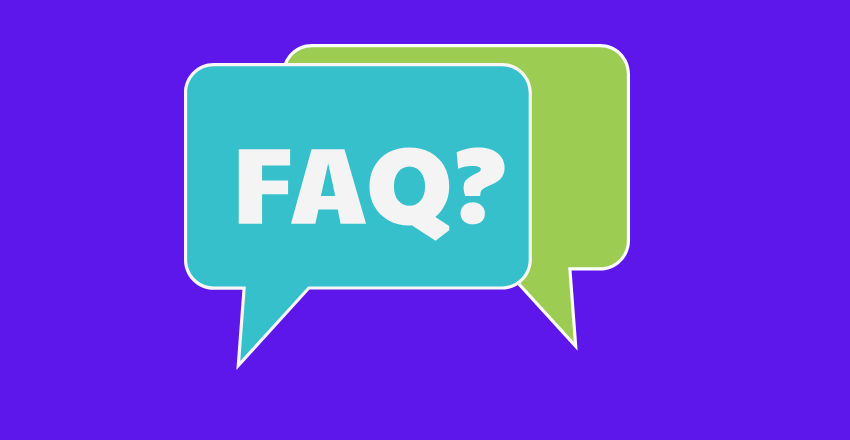
FAQ 1: What are the key areas I should focus on when interviewing a Django developer?
Answer: It’s crucial to assess knowledge in Django’s ORM, its middleware system, database migrations, and Django’s security features. Practical experience with real-world projects can also provide insights into their capabilities.
Pro Tip: Use a mix of theoretical and practical tests to get a comprehensive view of their abilities.
FAQ 2: How do I gauge a Django developer’s practical experience?
Answer: Ask for examples of past projects, focusing on challenges faced, solutions implemented, and the results achieved. Their approach to problems can be more telling than a correct answer.
Code Sample:
# Ask them to write a simple Django view function.
def hello_world(request):
return HttpResponse("Hello, world!")FAQ 3: How can I test their knowledge of Django’s security measures?
Answer: Pose scenarios involving common vulnerabilities like CSRF or SQL injection. Ask how Django counters these threats and how they’d ensure an application remains secure.
Pro Tip: Django provides built-in protections against many vulnerabilities, but developers should still be proactive in securing applications.
FAQ 4: What’s a good way to assess their familiarity with Django’s ORM?
Answer: Ask them to craft complex queries or to optimize database calls. This not only tests ORM knowledge but also understanding of databases and efficiency.
Code Sample:
# Ask them to retrieve all active users created in the last week.
User.objects.filter(is_active=True, date_joined__gte=one_week_ago)FAQ 5: How can I test their knowledge about deploying and scaling Django applications?
Answer: Discuss deployment processes, strategies for handling high traffic, and tools they’d use. Check their familiarity with caching mechanisms and database optimization for Django.
Pro Tip: Tools like Redis, Celery, and knowledge of database indexing are crucial for scaling Django apps.
In summary, interviewing a Django developer requires a balance of assessing theoretical knowledge, practical skills, and a problem-solving mindset. Tailor your approach based on the specific needs of your project and team.
Lydia is a seasoned technical author, well-versed in the intricacies of software development and a dedicated practitioner of Python. With a career spanning 16 years, Lydia has made significant contributions as a programmer and scrum master at renowned companies such as Thompsons, Deloit, and The GAP, where they have been instrumental in delivering successful projects.
A proud alumnus of Duke University, Lydia pursued a degree in Computer Science, solidifying their academic foundation. At Duke, they gained a comprehensive understanding of computer systems, algorithms, and programming languages, which paved the way for their career in the ever-evolving field of software development.
As a technical author, Lydia remains committed to fostering knowledge sharing and promoting the growth of the computer science community. Their dedication to Python development, coupled with their expertise as a programmer and scrum master, positions them as a trusted source of guidance and insight. Through their publications and engagements, Lydia continues to inspire and empower fellow technologists, leaving an indelible mark on the world of scientific computer science.
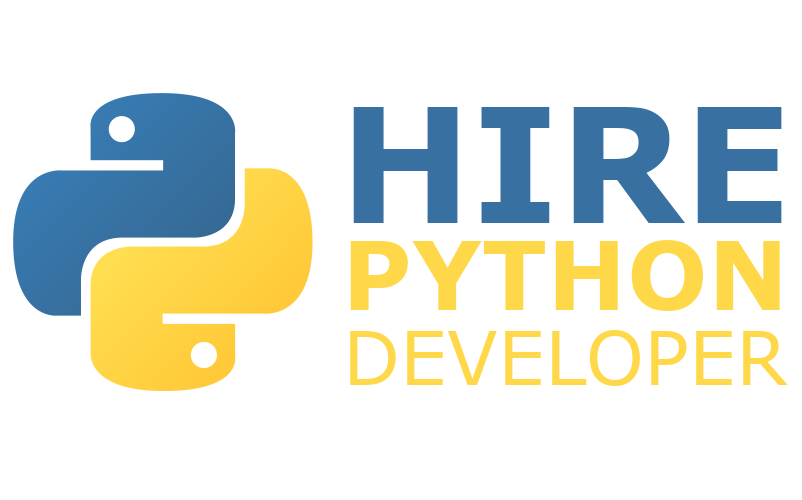

![15 Most Contributed Python Projects on GitHub [Stats]](https://hirepythondeveloper.com/wp-content/uploads/2024/03/15-Most-Contributed-Python-Projects-on-GitHub-Stats-1-150x150.png)

